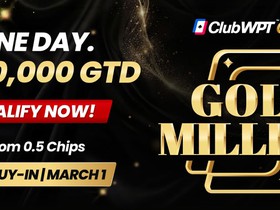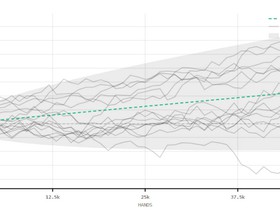Daniel Negreanu has signed a personal partnership with Kalshi, a fast-growing prediction market where users trade yes or no outcomes across sports, politics, econonmy, pop culture, and many more topics.
The GGPoker ambassador said he has been trading on the platform privately and will now feature and talk about Kalshi during his ongoing GGPoker online bracelet series streams.
To celebrate the tie-up, Negreanu will stake one follower into December’s WSOP Paradise Super Main Event in the Bahamas. The package includes a $26,000 seat to the Super Main Event boasting $60 million guarantees and a nine night stay at Atlantis Royal, along with other perks.
“I’m stoked because I’ve sort of been holding this for a while because I’ve been playing on Kalshi for quite a while,” Negreanu told PokerNews.
- Or get up to $100 worth of rewards
- Available in many regulated markets
- Great MTT schedule including WSOP events
What Are Kalshi and Polymarket?
The tie-up puts a poker face on a booming niche. Prediction markets are drawing mainstream attention in the US. These platforms let users trade on binary event outcomes across sports, politics, entertainment, economics, and weather. Prices reflect real-time sentiment and can be traded before and during events.
Currently, there are two major players in this space: Polymarket and Kalshi.
While Polymarket is considered to be slightly bigger than Kalshi, it is crypto-based and currently not available to US users. Kalshi, on the other hand, has taken a regulator-first route. Kalshi says it has more than one million users and over a billion dollars in trading volume. The platform is overseen by the CFTC, which gives it access to all 50 US states that traditional sportsbooks do not share.
It distinguishes itself from sportsbooks with exchange-style pricing and an emphasis on information markets.
Prediction markets have grown so quickly that even industry heavyweights FanDuel and DraftKings are considering an entry in this space.
Why This Partnership Matters for Poker Players
Poker players already engage with predictions beyond the felt. From last longer bets to friendly side action, the community is comfortable staking opinions on outcomes beyond the felt.
In fact, GGPoker actively promotes prop betting, with features such as Last Longer challenges, bankroll wagers, and even Final Table betting. PokerStars, too, has dabbled in the space, previously offering markets linked to major series like WCOOP and SCOOP, where players could stake money on who would come out on top.
While Kalshi currently does not currently list poker markets, Negreanu has hinted that poker-themed contracts could follow. That would be a notable bridge between poker’s long-standing prop culture and a regulated, nationwide event exchange.
Negreanu has already floated ideas like yes or no on GGPoker’s Super Main Event hitting its guarantee. The WSOP Paradise Super Main is expected to be a focal point this December after it upped the ante with a 60 million dollar guarantee.
Other possibilities naturally fit the format. Will a woman reach the World Series of Poker Main Event final table? Or will Michael Mizrachi win another Poker Players Championship by a given year? These are clear event questions. They are measurable and settle cleanly.
Seasonal online series could generate dozens of markets without flooding the board. Will the WSOP Online Main Event break the record again this year? Will a flagship Sunday cross a specific entry threshold? Will a site run a mystery bounty of a defined size before a certain date?
Live tours could spin off questions like, will an EPT stop break its all-time Main Event entry record this season? Will PSPC make a return?
If Kalshi adds even a handful of poker outcomes, it could bring familiar sweat to a broader exchange audience.
The hurdles and the upside
Kalshi’s regulatory posture is both a moat and a constraint. It is federally regulated by the CFTC, with nationwide ambitions. It has also faced pushback from some states that view binary contracts as gambling products. Judges in New Jersey and Nevada have sided with Kalshi for now, and a case in Massachusetts is pending.
Poker-themed markets would need careful design. Questions must be objective, publicly verifiable, and free from obvious manipulation. Operators and tours would likely avoid any suggestion of trading on insider information. That means markets will skew toward macro outcomes with public data and clear cutoffs.
There is also product fit. Poker is niche compared to NFL props or presidential politics, but it is highly engaged. A handful of well-chosen markets around tentpole moments might be enough. The goal is not to recreate a sportsbook lobby. It is to capture the natural prop energy around major poker weeks.
A second-order effect could be visibility for poker itself. Prediction markets drive conversation. If Kalshi lists a question around a record guarantee or a long-awaited event revival, social chatter will follow. That can push casual attention back toward the underlying tournaments and sites.








